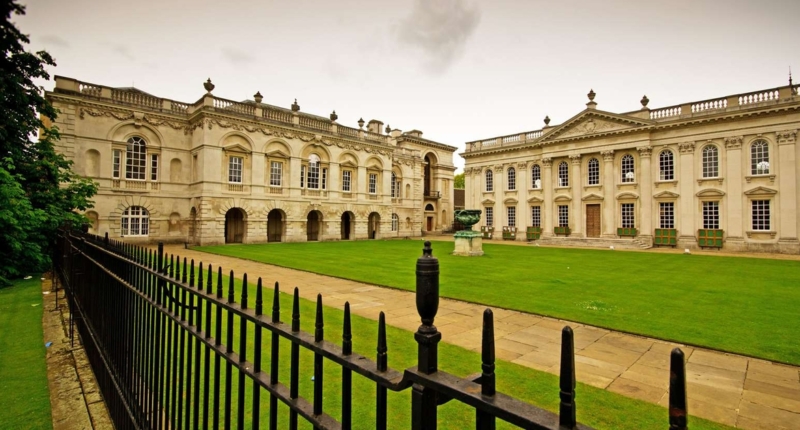The University of Cambridge’s contribution to the UK economy is £29.8 billion each year, which is four times more than the Premier League, according to a report commissioned by the university. The contribution is mainly due to research, entrepreneurial activities, tourism, and the enhanced value that graduates bring to employment. The report also reveals that Cambridge supports over 86,000 jobs across the country and that for every £1 spent, £11.70 of economic impact is created. Tourism associated with the university, calculated with pre-Covid visiting data and average spend, was worth £587m to the economy. The university has also produced 178 spin-out and 213 start-up companies that have emerged from the Cambridge cluster. Cambridge Enterprise, the university’s translation and commercialisation arm, is an essential engine for the university’s economic impact. Parkwalk, which manages the University of Cambridge’s annual Enterprise Funds, stated that the university’s science and technology spin-outs have a tremendous economic contribution to the UK, with over £23bn of economic impact in a single year stemming from the University of Cambridge spin-outs alone.
University of Cambridge contributes £29.8bn to UK Economy Each Year: Report
According to a new report, the University of Cambridge contributes £29.8bn to the UK economy each year, which is four times more than the Premier League. The report, which was commissioned by the university and carried out by London Economics, reveals that the contribution is mainly from research, entrepreneurial activities, tourism, and the enhanced value that graduates bring to employment. The university’s economic impact supports over 86,000 jobs across the country, and for every £1 spent, £11.70 of economic impact is created. Furthermore, for every £1 million of publicly-funded research income received, £12.65 million in economic impact is generated across the UK. Nearly 80% of the £29.8bn comprised research and knowledge exchange activities, including the 178 spin-out and 213 start-up companies that have emerged from the Cambridge cluster. The sum also includes teaching and learning, educational exports, including international tuition, university and college spending, and tourism.
The report reveals examples of research impact such as saving at least £120m of public money in the South West by improving surveillance of bovine tuberculosis, and creating around 140 jobs in Cambridge for biopharmaceutical company Astex, due to innovation in drug discovery techniques. Acting Vice-Chancellor Dr Anthony Freeling said that the report shows how international excellence, combined with investing in innovation, creates jobs and significant growth for the UK economy. He added that developing “one of the world’s leading innovation clusters” from the university was the result of a deliberate strategy of innovation and commercialisation.
Cambridge Enterprise an Important Engine for the University’s Economic Impact
According to Dr Diarmuid O’Brien, Chief Executive of Cambridge Enterprise, the university’s translation and commercialisation arm, Cambridge Enterprise is an essential engine for the University of Cambridge’s economic impact. Knowledge transfer and commercialisation activities form a significant proportion of the university’s contribution to the UK economy, he added. The university’s contribution to the economy is £29.8 billion every year, and research, entrepreneurial activities, tourism, and the enhanced value that graduates bring to employment are responsible for this impact, as per a report commissioned by the university.
The report, carried out by London Economics, states that the University of Cambridge supports over 86,000 jobs across the country. It also highlights that for every £1 spent, £11.70 of economic impact is created. Furthermore, for every £1 million of publicly-funded research income received, £12.65 million in economic impact is generated across the UK. Almost 80% of the £29.8bn was comprised of research and knowledge exchange activities, which included the 178 spin-out and 213 start-up companies that have emerged from the Cambridge cluster. The sum also includes teaching and learning, educational exports, including international tuition, university and college spending, and tourism.
The report also mentions that tourism associated with the university was worth £587m to the economy, as calculated with pre-Covid visiting data and average spend. The economic impact of tourism was attributed to the culture and heritage of the university, including its eight museums and the Botanic Garden. The museums and the garden reportedly brought more than one million visitors a year to the university, pre-Covid.
Moray Wright, CEO of Parkwalk, which manages the University of Cambridge’s annual Enterprise Funds, stated that the university’s science and technology spin-outs have a tremendous economic contribution to the UK, with over £23bn of economic impact in a single year stemming from the University of Cambridge spin-outs alone. He added that the innovation economy has the potential to be the engine of growth the UK needs to prosper, and the report offers a compelling case for the UK to foster a financial and regulatory ecosystem that helps spin-out companies to grow and achieve commercial success on UK soil.
Don’t miss interesting posts on Famousbio

